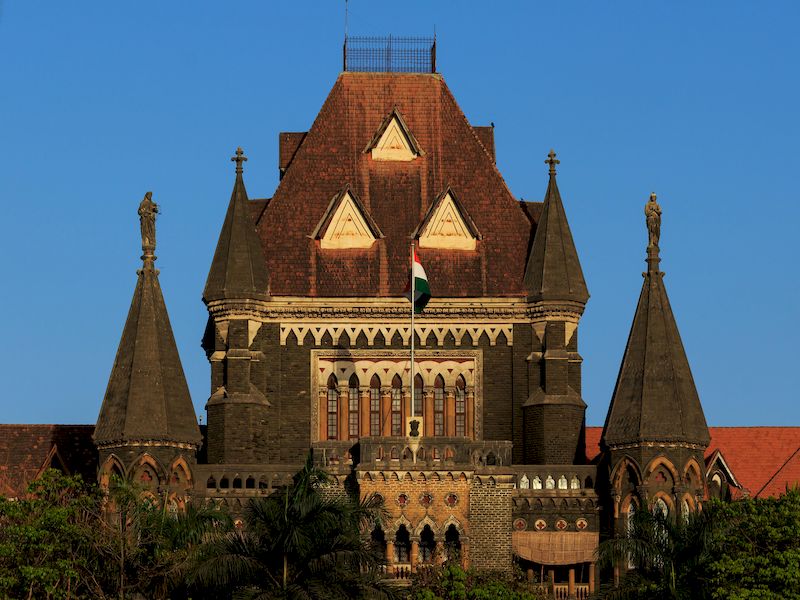 By Dilip Shah, Senior Counselor and Analyst for Redevelopment of Housing Societies and Society Laws
By Dilip Shah, Senior Counselor and Analyst for Redevelopment of Housing Societies and Society Laws
The Maharashtra Co-Operative Societies Act, 1960 provides that every Housing Society has to maintain up to date record/documents and accounts for smooth working of the Society. There are different issues of disputes arises in every Society between Managing Committee and Members. It is advisable to solve the disputes amongst the Members only and not to hand over the Management of the Society to the Administrator. Sometime none of the Members are interested in doing the administrative work then the Society should employ a paid employee as an Administrator.
The major decision should be taken by Members themselves. When the Management of the Society is not functioning as per the provisions of the Maharashtra Co-Operative Societies Act, 1960, Maharashtra Co-Operative Societies Rules, 1961 and the Bye Laws of the Societies, then in such cases the Dy. Registrar has the discretion to appoint an Administrator to carry out the Management of the Society.
The Managing Committee is responsible to maintain smooth functions of the Society. If any Member aggrieved by the Managing Committee for inspection of any document or record of the Society can file an application to the Dy. Registrar of Cooperative Societies. If Dy. Registrar is satisfied that the record of the Society is not maintain properly then under Section 78 (1) of MCS Act, 1960, the Administrator is appointed. The Administrator enjoys all the powers of the Managing Committee. He is also entitled to call a Special General Body Meeting to reconsider the decisions of the earlier Committee.
The remuneration of the Administrator is fixed by the Dy. Registrar. At the end of the tenure of six months the Administrator should hand over the charge either to another Administrator if directed by the Dy. Registrar or he should conduct an election and hand over the charge to the new Managing Committee. All acts done by the Administrator in good faith are binding on the Society irrespective of the amount of the expenses incurred by the Administrator.
The Dy. Registrar takes in response to the persistent complaints lodged by Society Members against the Society’s Committee Members. The Committee Members when perform several illegal functions during their term which are not in conformity with the Laws. They conduct illegal elections to vote themselves on the Managing Committee.
The cases of appointment of Administrators in Co-Operative Housing Societies are now rising. Generally the Deputy/Assistant Registrar of Co-Operative Societies (“the Registrar”) appoints an Administrator upon complaints from Members of the Society, if he finds that it is a fit case to expel the Managing Committee of the Society.
The powers enabling the Registrar to expel a Committee are to be exercised only sparingly and to bring erring Societies and their Committees to book. Such powers have to be exercised by the Registrar after giving the Committee an opportunity of being heard and an opportunity of stating objections and by application of principles of natural justice.
Section 78 of the MCS Act, 1960 confers the Dy. Registrar with such powers to be exercised upon the specified grounds including when the Managing Committee has committed defaults or which has been found negligent in performance of duties or which has committed an act prejudicial to interests of the Society or Members of the Managing Committee or which has willfully disobeyed directions of Co-Operative Authorities or which is not discharging its functions properly and diligently or the business of the Society has come to or is likely to come to a halt.
When the Committee is removed, the Registrar has two options: 1. to appoint 3 or more Society members, who should not be the members of the Committee being removed, or 2. to appoint Administrator(s) in place of the expelled Committee. However, in practice the first option is hardly exercised. On the contrary the same person is appointed as an Administrator of more than one Society.
Remuneration payable to an Administrator is to be fixed by the Dy. Registrar. The Act and the Rules are silent about the basis for or methodology of fixing such remuneration. On equity and reasonableness such remuneration has to be with reference to the nature and quantum of functions performed by the Administrator. In some cases, the Administrator, in turn, appoints a private individual and remotely functions through such private appointee.
The Bank Account of the Society is operated by the Administrator himself. The Administrator or the private appointee, as the case may be, does not devote more time for managing the affairs of the Society. Under the circumstances, the remuneration should be based on these aspects. The quantum of time spent by the Administrator or his appointee may be noted on day to day basis. The Society or its members may keep such records if they want to take up the issue of reasonableness of remuneration at a later date. In fact, the entire practice of appointing such private persons by the Administrator and remuneration to him is questionable under the law.
In Maharashtra, an Administrator is appointed in the Society by the Deputy Registrar of that particular ward. The law provides for appointment inter alia of the Administrator for a maximum period of 6 months which may be extended for a further maximum of 3 months. However, suffice to emphasize that such an extension has to be for the reasons to be recorded in writing and under proper intimations to the Society. All powers whether judicial, quasi judicial or administrative are to be exercised objectively and reasonably.
The spirit of the law is that the Administrator should set the things right and hold the elections at the earliest. The Administrator is like a guest to manage the affairs of the Society on ad-hoc basis till new Committee is constituted by due process of law. Problems may arise when the guest overstays and beyond the need. Being an ad-hoc appointee, the powers of an Administrator are quite restricted. Legally speaking, the Administrator replaces the Managing Committee and therefore the powers of an Administrator, under no circumstances, can exceed the powers of the Managing Committee.
As per the MCS Act, Administrator has to fill the M-20 Bond to be maintained in Society's records and a copy is to be submitted to the Deputy Registrar under whom he is working. Thereby, the administrator is liable for any loss sustained by a Society during the term of his office in respect of any act or omission in the management of the Society.
In the cases where the Redevelopment of Society is proposed, he is not even authorized to negotiate with the Redevelopers/Builders nor he has necessary powers to permit the commercial activity within residential complex and would be the process for the same.
Mumbai High Court has held that a person appointed to look after the daily affairs of a cooperative housing society cannot implement major decisions, until a regular general body comes into existence and considers the matter.
The order was passed by Division Bench of Justices P. B. Majmudar and A. A. Sayed in the case of Vasant Kunj Co-Operative Society. The Dy. Registrar of Co-operative Societies had appointed an Administrator for the Society after it was found that the then Managing Committee was not following By Laws.
A Special General Body Meeting took the decision to go for redevelopment and the Administrator ratified the proposal. One of the Members moved the Mumbai High Court contending that the Administrator had no power to ratify a major policy decision such as this, as he was appointed basically to conduct the elections and appoint a new Managing Committee.
Upholding the Petitioner’s contention, Mumbai High Court held that Administrator should not implement the decision to redevelop until a new General Body considers it a fresh.
An Administrator replaces the Committee and therefore, the supremacy of the General Body continues. There is no provision in the Act, Rules or the Bye Laws prohibiting holding of General Body Meetings during continuance of Administrator. Very rightly so, because upon appointment of Administrator the functions and affairs of the Society do not come to a standstill and the powers which are reserved and vested in General Body can be exercised by General Body only. The decision of General Body, subject to the framework of the law, would be binding upon the Administrator being in place of the Committee.
Since, an Administrator is appointed in the place of a delinquent Committee; manner of functioning of Administrator should be exemplary so that the Society, its members and incoming Committee can observe good governance by functioning objectively and transparently. As part of the minimum requirement of such good governance the Administrator should disclose to members complete details of income and expenditure and receipts and payments for each month. Similarly decisions taken by the Administrator from time to time should be communicated to the members with reasons.







Can society committee transfer the ownership right to legal heir afte demolition of building which is under redevelopment & the death of member takesplace
Yes.
Can a non-member become secretary /chairman of managing committee of cooperative housing society. if not please give the provisions of law, act.
The office bearer has to be member of the society. see the election bye-law.
Is there any case under the Law that Administration deployed has how much the salary to be paid.
Salary is defined in law.
If the managing committee is dissolved, does a flat-owner have to get permission/NOC from the Administrator to give their premises on rent. THANKS.
Yes.
can an associate member become a member of the society commitee if his name appear second on the share certificate.
Associate members cannot become office bearer.
IF A COMPANY FLAT IS IN THE SOCIETY AND IF ANY OCCUPANT OTHER THAN COMPANIES PARTNER OR LEGAL HEIR CAN THEY PARK THIER CAR OR TAKE PART IN SOCIETY MEETINGS.WHAT ACTION CAN BE TAKEN IN SUCH CASE IF THE AUTHOISED OFFICER IS HAND TO GLOWS WITH THE OCCUPANT.
Complain to Dy registrar. Only authorised representatives can take part. Parking is allowed.
Can the Management committee of a society request Registrar to appoint an Administrator ? This is because in our society, members are not allowing the management to run the society smoothly
Do not allow any administrator to enter the society. Resolve the matter within the society. Administrator do nothing but create more mess plus your money is in their hands. Their term is for six months but they continue to stay for years and the society goes the dogs.
Our society is yet to be formed by the builder. In the meantime, the flat owners selected a adhoc committee to collect maintenance and maintain the society. what are the power of adhoc committee especially financial powers. Can the adhoc committee have the powers that are equivalent to registered societies. Please explain
Can society management manage by government authority if some dispute going on with committee group?
Can Administrator continue in Society after expiry of 6 months of his appointment ? Even if he has NOT completed his task of calling fresh elections of New Mg. Committee of Society , the chief reason for his appointment ? Or does have to get specific 3 month extension from Dy. Registrar to continue in charge of Society affairs AFTER his first 6 months have expired ?
Registrar has appointed ad hoc committe of 3 members after resignation of all committe members. May I know the rights of this ad hoc committe? Can they take any other pending issues in Annual General Meeting other than accounts? Can they allow membership to non member?
Whether administrator can sign share certificate? If yes, then signature of secretary of new Managing Committee is necessary with signature is administrator?
If a member stays away from society for work..can he request the society to send maintenance bill to his current address?